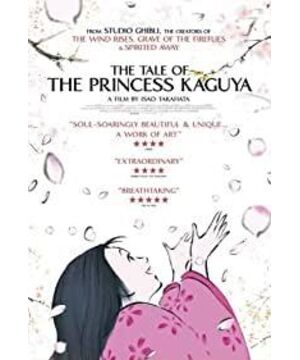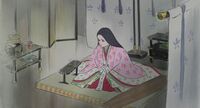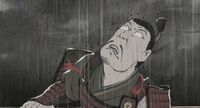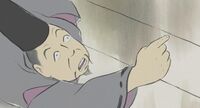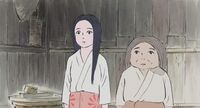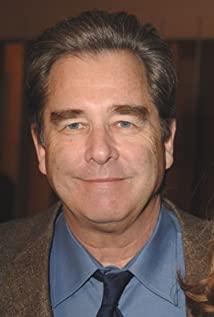Narratively, the movie has no special features and tells the story of a princess being forced to marry. What interests me is the first half of the story, where the princess grows up as a child, then escapes, and then goes back. It is a metaphor for a person to socialize. People were forced to be born into this world, and they only had to be responsible for growing up in the past few years. Whether it was swearing at each other, smashing items, or asking for it with peace of mind, most of their actions would be forgiven - "Children!" Everyone said that. Being young gives children a natural right to be exempt from accountability.
I remember when I was a child, I took out all the snacks at home and put them in front of a little friend. Not for him to eat, but deliberately put out to lure him. When he wanted to eat until he reached out and begged me, he locked all the potato chips, soda, and beef jerky in his arms into the cabinet. I was very, very proud to see him howling and crying when he couldn't get a snack.
Growing up, I had deep fears and apprehensions about this triumph. This is evil for no reason, the excitement after doing evil. It is easier to destroy than to build, it is easier to give up than to hold on, and it is easier to accept the absurd than to search for meaning.
It is precisely because it is difficult to think that living gives human beings a reason not to die. That is to think, why not choose to die. The film roughly gives a reason, people have to experience in life, the reality is grass and flowers, abstraction is like wealth and love. I choose to live because the threads of social relations entangle me one by one, and the blood of my family ties me to this mountain range. I perpetuated meaninglessness after this meaningless moment of birth.
Camus always said that life is the greatest absurdity. In this messy world, people must constantly build social relationships in order to survive and live better, but they must also establish their own subjectivity, so as to have the premise of chasing meaning. Neither of the two is easy.
The princess in the movie constantly refuses the engagement, which seems to me a fear of the unknown. Uncertainty makes you anxious, and certainty makes you boring. Running between the two is the process of searching for meaning. The fragment of the princess flying with her brother in the countryside is the expectation of utopia. I always thought that when I became myself and did what I liked, everything would be fine. Social relationships are invisible webs from which no social person can escape.
In Japanese, social people are called "humans", and natural people are called "people". In the end, the movie did not say that the prince and the princess lived happily together, but it implied the idea of "becoming a human being, and also becoming a human world". The world is so ridiculous, why not die? Now, it's probably because I'm too busy to be a person and I don't have time.
What impresses me about the movie is this attitude of encouraging autonomy but affirming others. Besides, the style of the painting is so good, it is worthwhile to spend more than two hours watching it.
View more about The Tale of The Princess Kaguya reviews


